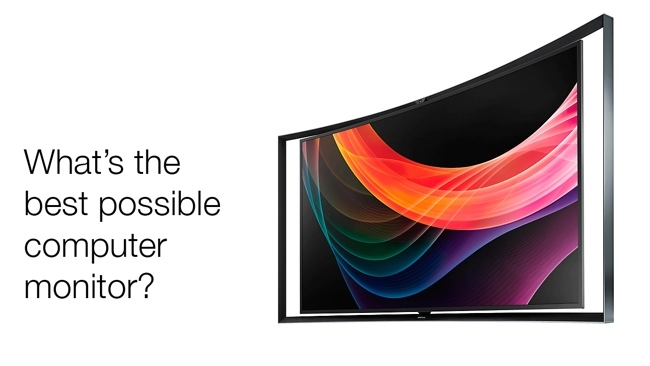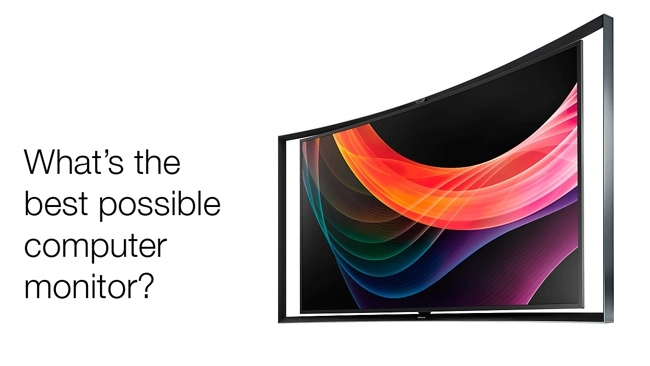
 What's the best possible computer monitor
What's the best possible computer monitor
If you could have your dream monitor for computer editing, what would it be like?
We recently published this article about a very cheap 4K TV that looks ideal on the face of it for a computer monitor. And it probably will be very good, with massive resolution and plenty of on-screen real-estate.
But I'm not a hundred percent sure that just by making computer monitors bigger and with more pixels you're going to find the ideal product. That's because, beyond a certain size, there are issues.
The biggest of which is that if you sit too close to a large monitor, it begins to fill your field of vision. That's a good thing in one respect - it's more immersive, and you use more of your available visual field. So far, the biggest monitor I've used is the 27" one on an iMac, which has a resolution of 2560 x 1440.
This was a wonderful screen to work with, but gave me an appetite for even bigger displays. But the issue is that your field of vision, if you define it as being all those points that you can see that are equidistant from your eyeball, is spherical and not circular. Which means that looking at a flat screen is not going to give you the best experience because the corners will be further away from your eyes than the centre.
It wouldn't matter so much (after all, it does seem perfectly natural looking at a flat screen), except that with a conventional screen, you have to refocus your eyes when you look near the edges. Exactly how annoying this is will probably vary from person to person, but it was enough to make me think it definitely wasn't the best solution.
Curved
So what I would want, first of all, would be a curved screen. A big one. So I'd want it to be 4K.
And I'd want it to be OLED. For me, the contrast ratio on a screen is as important as the colours - in fact, it enhances the way we perceive them.
OLED tends to be more power-efficient, and whereas with an LCD screen, even if it's showing all black, the backlight is still on, with OLED, if there's black on the screen, it's not using any power (apart from the parts of the monitor that are nothing to do with the screen).
This might sound like a lot to ask, but OLED is easy to bend, and it has the right characteristics. It's eye-wateringly expensive at the moment, but we may be at a point where prices start to come down.
It goes without saying that colour accuracy would be important. Perhaps not grading quality - you'll probably always need a specialist monitor for that - but it should be natural and neutral at least.
I have a feeling my ideal screen might be available in the next two or three years, and might be affordable as well.
Read: A 4K monitor for the price of an iPad
Tags: Technology



Comments